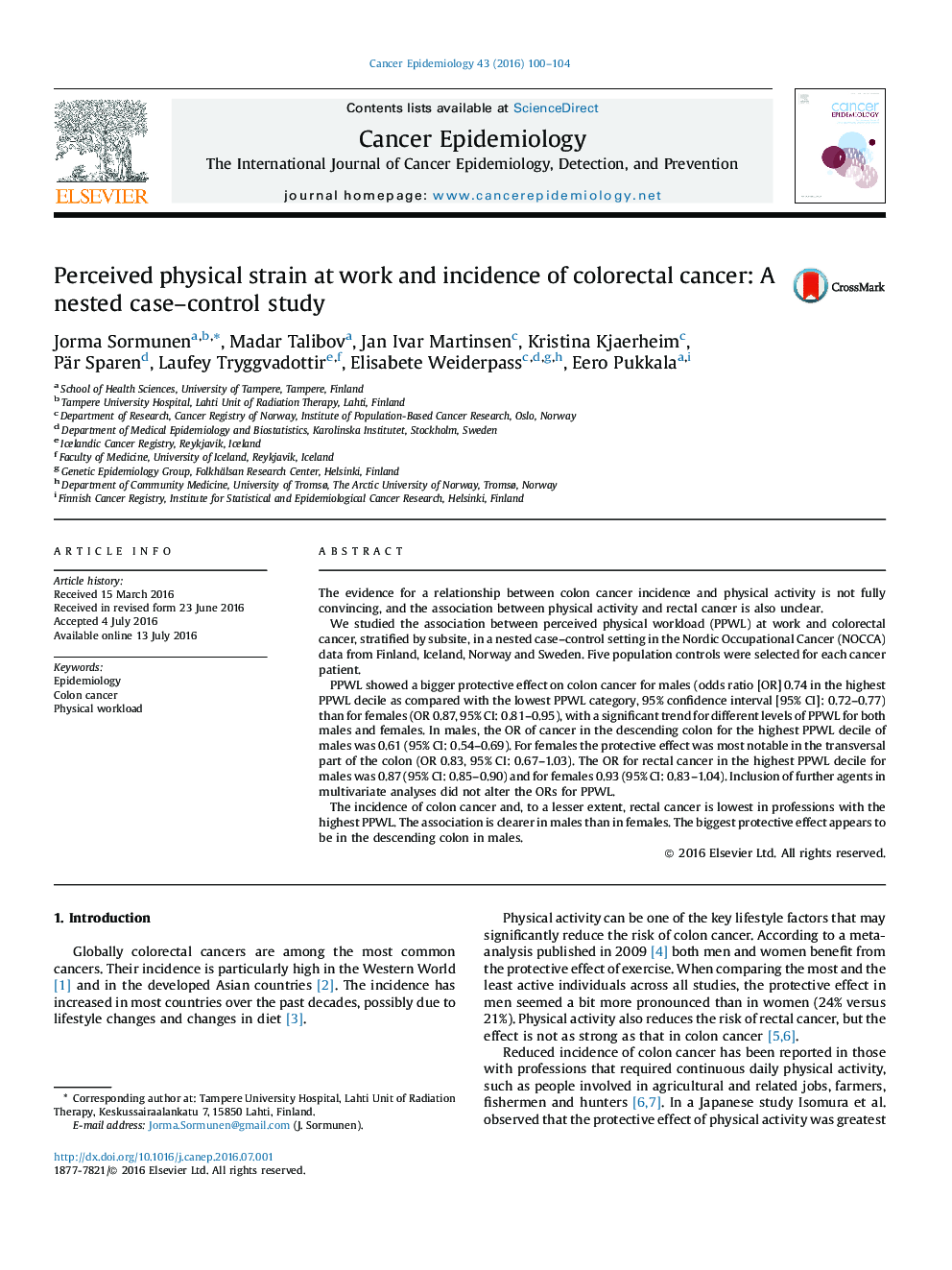| Article ID | Journal | Published Year | Pages | File Type |
|---|---|---|---|---|
| 2108820 | Cancer Epidemiology | 2016 | 5 Pages |
•PPWL shows a bigger protective effect for colon cancer in males than in females.•The protective effect against rectal cancer is smaller than that against colon cancer, and is less pronounced in women than in men.•The protective effect of PPWL in males is greatest for cancer in the descending colon.•In females the protective effect is most pronounced for the transversal part of the colon.
The evidence for a relationship between colon cancer incidence and physical activity is not fully convincing, and the association between physical activity and rectal cancer is also unclear.We studied the association between perceived physical workload (PPWL) at work and colorectal cancer, stratified by subsite, in a nested case–control setting in the Nordic Occupational Cancer (NOCCA) data from Finland, Iceland, Norway and Sweden. Five population controls were selected for each cancer patient.PPWL showed a bigger protective effect on colon cancer for males (odds ratio [OR] 0.74 in the highest PPWL decile as compared with the lowest PPWL category, 95% confidence interval [95% CI]: 0.72–0.77) than for females (OR 0.87, 95% CI: 0.81–0.95), with a significant trend for different levels of PPWL for both males and females. In males, the OR of cancer in the descending colon for the highest PPWL decile of males was 0.61 (95% CI: 0.54–0.69). For females the protective effect was most notable in the transversal part of the colon (OR 0.83, 95% CI: 0.67–1.03). The OR for rectal cancer in the highest PPWL decile for males was 0.87 (95% CI: 0.85–0.90) and for females 0.93 (95% CI: 0.83–1.04). Inclusion of further agents in multivariate analyses did not alter the ORs for PPWL.The incidence of colon cancer and, to a lesser extent, rectal cancer is lowest in professions with the highest PPWL. The association is clearer in males than in females. The biggest protective effect appears to be in the descending colon in males.
